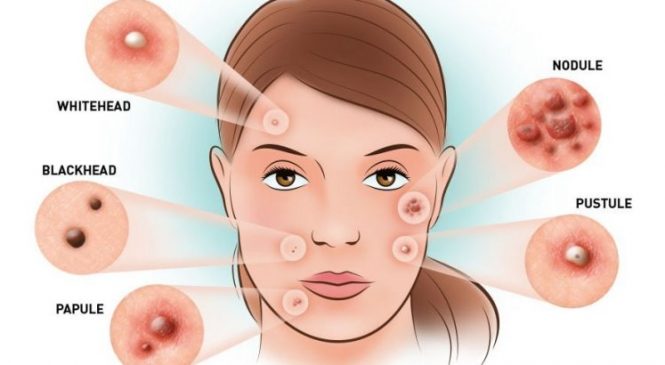Misconceptions And Truths Regarding Acne: Debunking Common Misconceptions
Misconceptions And Truths Regarding Acne: Debunking Common Misconceptions
Blog Article
Material Develop By-Cullen Watkins
You could believe that indulging in chocolate or greasy foods is the root cause of your acne, however that's simply among numerous myths swirling around this common skin condition. In fact, acne mostly originates from clogged up hair follicles, not your last dessert. Misunderstandings like these can lead you to adopt inefficient skincare methods that might even aggravate your situation. As you navigate the facts behind acne, you'll find insights that might change your technique to skin care and assist you achieve clearer skin. So, what actually lies below the surface area?
Common Myths Concerning Acne
When it concerns acne, many people believe in typical misconceptions that can cause complication and frustration. One widespread myth is that eating delicious chocolate or greasy foods creates acne. While diet plan can influence skin health, the direct link in between certain foods and acne isn't as well-defined as many think.
One more typical misunderstanding is that you need to scrub your face strongly to clear breakouts. In reality, hostile rubbing can aggravate your skin and worsen acne.
You could additionally think that acne only affects young adults, but adults can experience it too, usually as a result of hormone changes or anxiety. Some individuals believe that sun tanning can clear acne, but sun exposure can actually bring about skin damage and intensify outbreaks in the long run.
Last but not least, numerous think that utilizing rough products will certainly get rid of acne promptly. Nevertheless, these products can strip your skin of its all-natural oils, causing boosted irritability and more breakouts.
Scientific Facts Behind Acne
Recognizing the clinical truths behind acne can empower you to tackle this typical skin condition better.
Acne happens when hair follicles end up being blocked with oil, dead skin cells, and bacteria. This process commonly begins with an overproduction of sebum, the oil your skin normally produces. Hormonal adjustments, particularly throughout puberty or menstruation, can activate this excess oil.
Bacteria called Propionibacterium acnes thrive in these blocked pores, bring about swelling. When your body immune system reacts, it can trigger inflammation and swelling, causing those annoying pimples or cysts.
Genetics also play a role; if your parents had acne, you could be extra susceptible to it.
Diet plan and anxiety levels can affect acne too, but study is still developing in these areas. While enjoying oily foods won't straight create breakouts, a balanced diet can support your skin wellness.
Similarly, handling stress can decrease hormonal fluctuations that may worsen acne.
Tips for Taking Care Of Acne
Taking care of acne successfully requires a mix of everyday skincare practices and way of living changes. Start by developing a consistent skin care routine. Clean your face twice a day with a mild, non-comedogenic cleanser to eliminate dirt and excess oil. Avoid rubbing also hard, as best hormonal acne treatment can aggravate your skin and aggravate acne.
Next off, integrate products including salicylic acid or benzoyl peroxide to help prevent breakouts. Always follow up with https://trentonnwcmr.yomoblog.com/38668741/check-out-these-top-10-acne-therapy-items-that-might-transform-your-skin-care-video-game-your-perfect-skin-tone-waits-for -weight, oil-free cream to maintain your skin hydrated. Do not neglect sunscreen; choose non-comedogenic alternatives to safeguard your skin from UV damages without blocking pores.
Beyond skincare, take note of your diet. Limitation sugary and oily foods, and concentrate on fruits, veggies, and whole grains. Staying moisturized is crucial, so drink a lot of water throughout the day.
Additionally, handle tension with tasks like yoga exercise, meditation, or exercise, as stress can cause breakouts.
Finally, prevent picking or standing out acnes. This can lead to scarring and additional inflammation. If your acne persists, consult a dermatologist for individualized treatment choices.
Verdict
In conclusion, it's important to separate fact from fiction when it pertains to acne. By exposing common misconceptions, you can much better recognize your skin and make notified choices for your skincare routine. So, why remain to count on check out the post right here when the truth can encourage you? Embrace healthier routines, concentrate on mild cleaning, and bear in mind that taking care of acne is a journey. With the appropriate understanding, you're one action closer to more clear, healthier skin.
